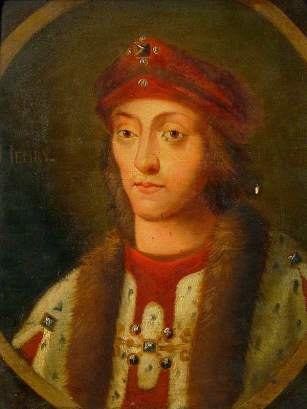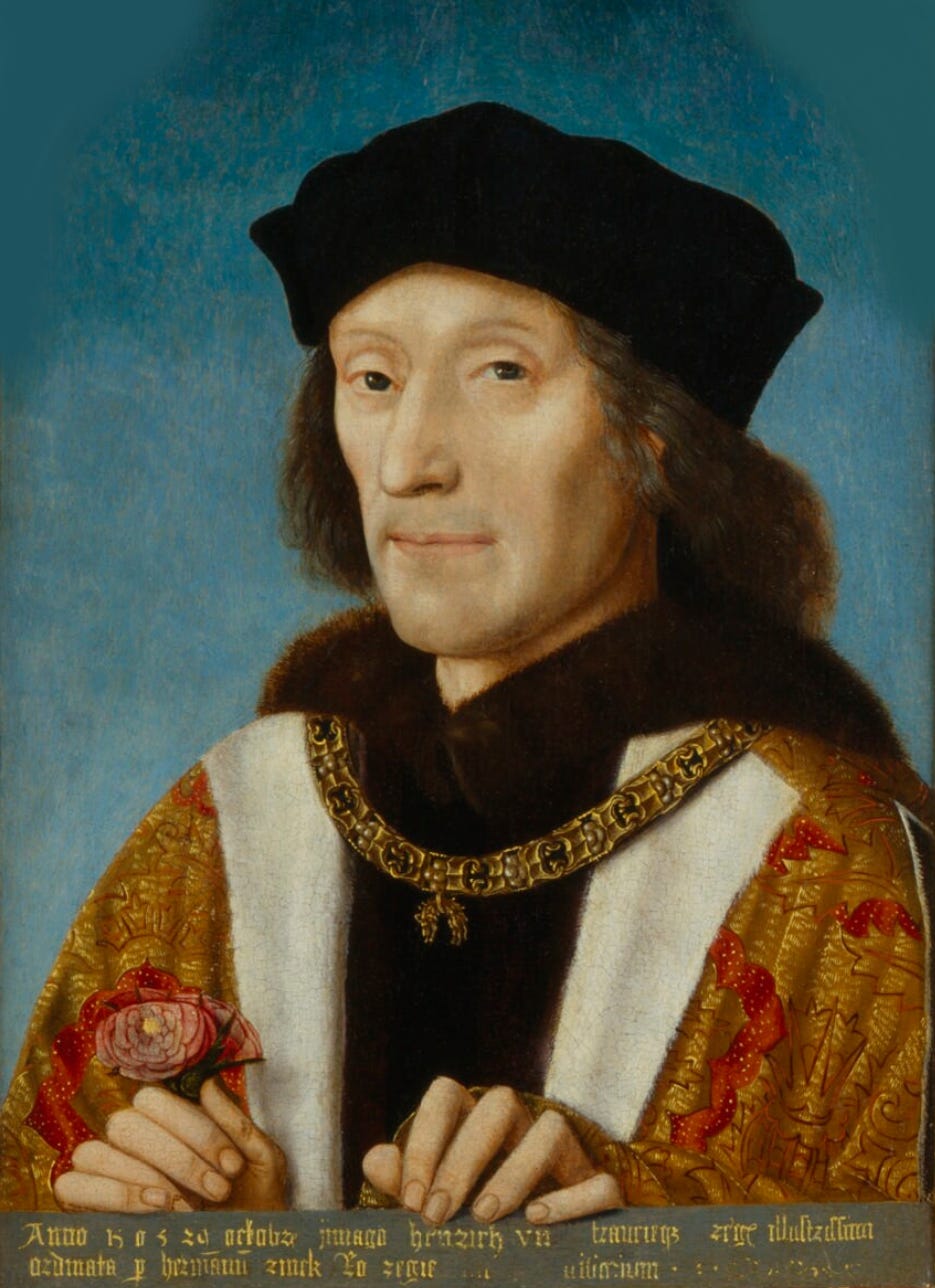Henry VIII's Illegitimate Brother
Did Henry VIII truly have an illegitimate brother? I think he did...but you decide for yourself!
Today, Henry VIII is one of the most recognizable monarchs in English and perhaps world history. When you read his name, it is likely that one of his rather imposing portraits came into your mind, and you thought, “That’s the guy who killed a couple of his wives!” And while, yes, Henry VIII is one of the most famous English monarchs ever, and you might feel like you already know a lot about him….there is something you probably didn’t know. It is VERY likely, that Henry VIII had an illegitimate brother…
Wait…What?
Yes! Henry VII, the father of Henry VIII and his many siblings, was also almost certainly the father of another much older naturally born son named Sir Roland de Velville. See, before Henry VII took the throne of England by right of conquest at the Battle of Bosworth, he spent a number of years is Brittany, where it is very likely that he fathered a son with an unknown Breton woman. When Henry came back to England to take the throne, Roland de Velville came with him, and remained very close to him throughout his life.
We know that Roland was created a knight after Henry took the throne. Which is a little bit unusual for an illegitimate son of a king, but more on that later! De Velville was often with or near the King and remained very close to him throughout his life. He was a very good military commander and he was actually praised by Henry VIII for his skills as such. De Velville was a talented jouster and a very prominent member at court. He was also an attendant at Henry VII’s funeral as a Knight of the Royal Household.
After the ascension of Henry VIII, he was made Constable and Captain of Beaumaris Castle in Anglesey, Wales and he held that position for the rest of his life. He married a prominent welshwoman and lived in Wales with his wife and family. He died was buried in Wales at the Chapel at Beaumaris. There are many written accounts that refer to Roland de Velville as “of a Kingly line” and it was also written that he shared similar looks to Henry VII as well.
So, in a time where it was almost expected that a King have illegitimate children, why did Henry VII never acknowledge this man who so many knew to be his son? I have a few thoughts… First, Henry VII was known for his devotion to his wife and to be a fairly pious man. If that was truly who he was as a person, then having an openly acknowledged illegitimate child would not likely fit in with who he was or wanted to portray himself as. Secondly, we must not forget that Henry VII had a rather distant claim to the throne of England, and he TOOK the throne by right of conquest. He also married Elizabeth of York, who, after the ruin of her family and death of her uncle Richard III at Bosworth, was the heir to the House of York. This marriage really helped legitimize the reign of Henry VII because his wife was beloved and their children would be half York. So, flaunting your illegitimate son, who was French no less, probably wouldn’t have been the best way to get his reign started when he probably felt he was under immense pressure to get it right.
It is for those reasons I think that although it was quietly known and accepted that Roland de Velville was in fact Henry’s Illegitimate son, it was not publicly acknowledged. What do you think?
And I mean…Seriously, look back at those photos, don’t you see the resemblance? Comment your thoughts down below!
Until Next Time!
McKenzie




That’s exactly what I think. It seems from his actions that he was a member of the family however recognizing him might have just gone one bit to far because he was on such thin ground anyways.
Henry VII’s attitude towards legitimacy (and thereby succession) was very complicated. His own claim to the throne was hugely shaky, and depended on an illegitimate son of John of Gaunt who was later declared legitimate by letters patent but *specifically* excluded from the succession to the throne, and of course his marriage to Elizabeth of York was designed to bolster his and his descendants’ legitimacy by absorbing her Yorkist claims. But at the same time he was very careful after seizing the throne to declare himself king by right of conquest from the day *before* the Battle of Bosworth. So he simultaneously invoked legal and ancestral legitimacy and *de facto* legitimacy. Given how conflicted he was, I suspect that recognising an illegitimate son (as of course Henry VIII would go on to do) was just an unnecessary complication and a can of worms best left unopened, especially with two legitimate sons (at first).